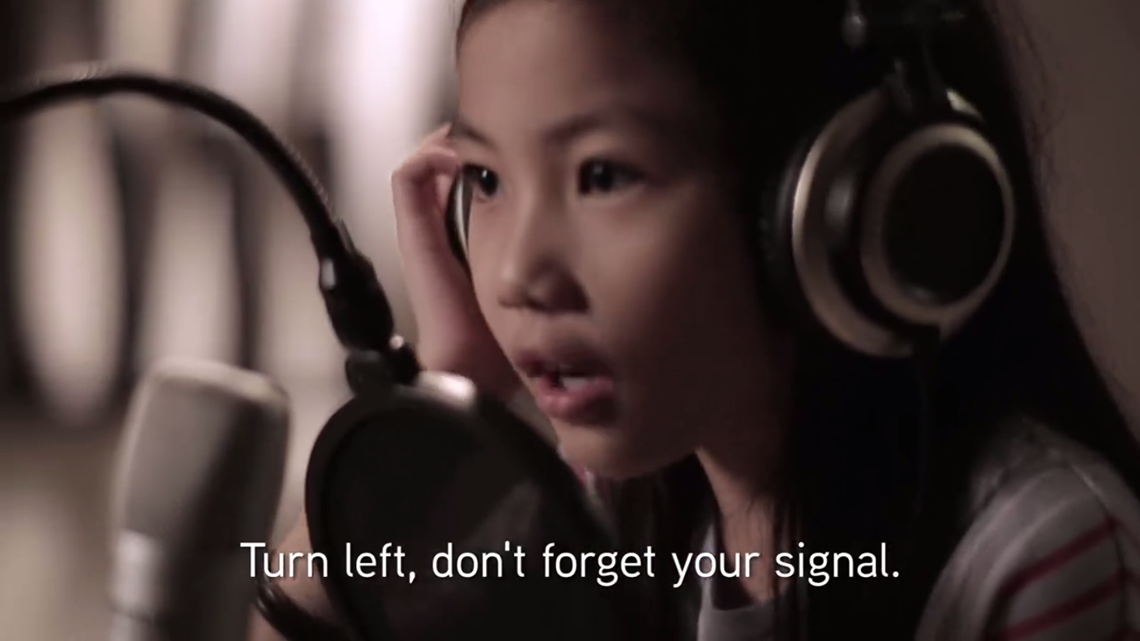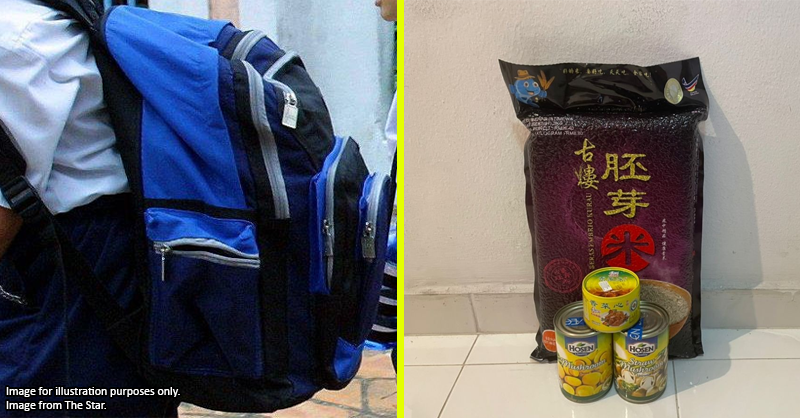8 things young M’sians should know about caring for aging parents
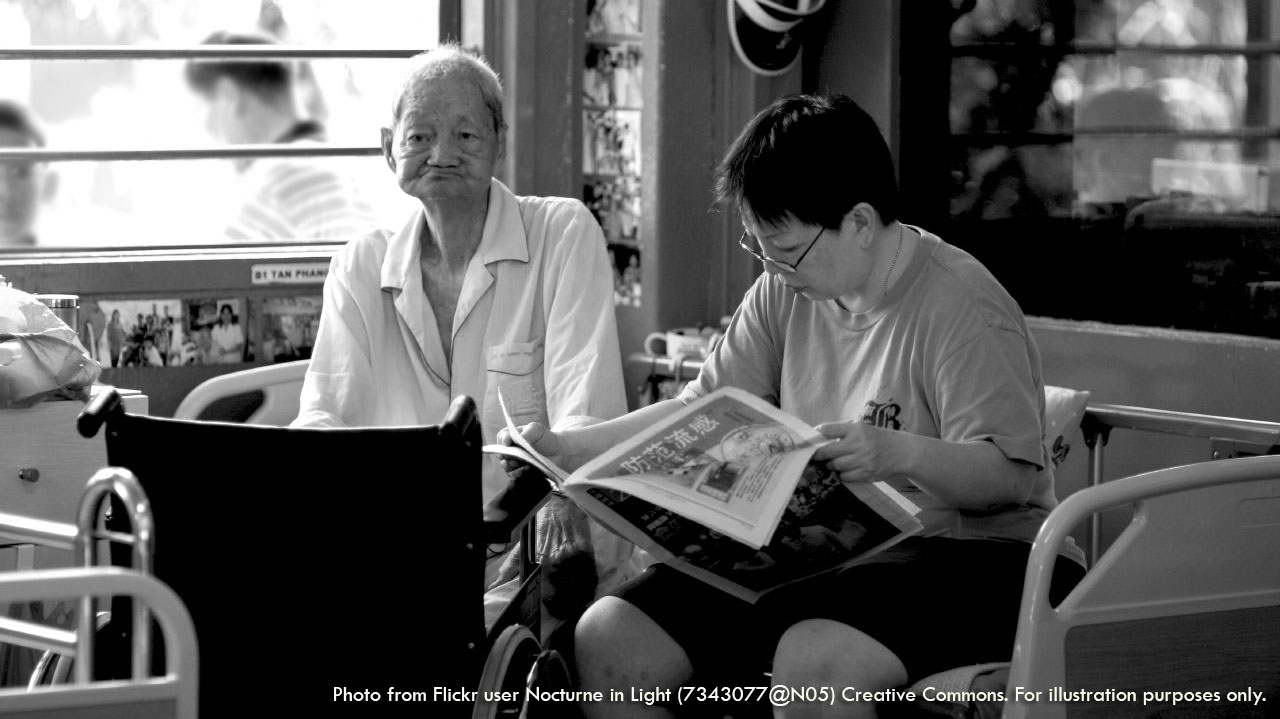
- 3.2KShares
- Facebook3.2K
- Twitter2
- LinkedIn2
- Email5
- WhatsApp27
It was a typical morning for me, riding the crowded LRT with the rest of Malaysians to work, still sleepy, and suddenly I received a text message from my brother:
“Please come to my place now. Mama jatuh and she can’t move. The ambulance is on its way to take her to the hospital.”
My mum, who was a 71-year-old elderly at the time of the accident, had a few falls before and once broke her left knee. So it wasn’t really a surprise to hear the news that she had broke her hip and shoulder. But what happened after that was something that I totally wasn’t prepared for.
Me, a 30-year-old earning enough to make ends meet for myself, had a 180° turn in life the day I become a caregiver to my mother. With my brother as an anak lelaki with his own family, and my sister living with her own family in the UK, the bulk of the burden was automatically mine to carry.
Why are we highlighting this? Because we recognise that life is constant – we grow up, our parents grow old, and there will come a time for a reversal of roles. That’s just how it works.
Three years have passed, and here’s what I’ve learnt from caring for her.
1. It starts off with denial.
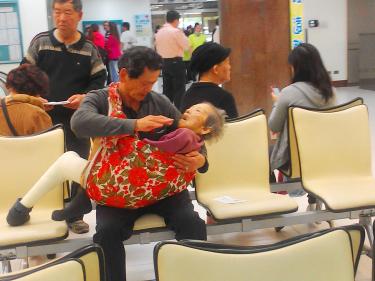
Growing up, I was so used to watching her doing everything on her own. She has always been a strong and independent woman in my eyes. She was a single parent that not only cared for her three kids (two of them are brats), but also her three nephews. Heck, she even went as far as driving my older siblings to work daily when both of them clearly own valid driving licence! #motherslove
Because of this, I had trouble accepting the fact that my mum’s health was fading. Even when I see her laying there in bed, unable to move, it was still hard to accept that she is no longer the strong lady that I used to know. It didn’t help also that she kept telling the relatives that she could walk (only with help, which she failed to mention) that further enhances my denial.
It took me several months later to finally come to terms that my mum is now a frail, elderly person that requires care. Pushing through the denial has made it easier for me, as the acceptance was something that I need to constantly remind myself whenever the going gets tough.
2. We have now switched roles.
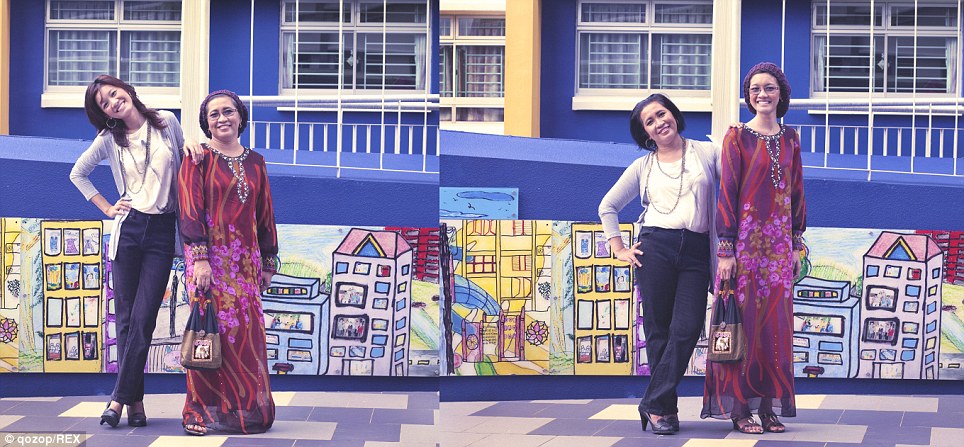
Instead of feeding me, changing my nappies, making sure I had everything I needed, it was time for me to baby her. I became her.
With this role-reversal, I had to learn a lot of new things too:
How to care for wounds, what are signs of infections, what not to eat, where exactly to hold her when she tries to sit up, how to transport her from bed to car to wheelchair, who to call for what, how to undress her, how to bathe her without hurting her, how to change her diapers……..
This new experience freaked me out at first, but after a while it became my second nature.
But to add to this, my mother is so used to having things her way. So when she lost the ability to do things on her own, she became a bit bossy and sometimes, nosy. Whether it’s about picking the right bulb for the balcony lights or even on how to correctly operate the microwave oven, she’d always have something to say.
To make matter worse, we have never seen things eye-to-eye since I was small! I wasn’t mentally prepared to take on the role as a caregiver, especially to someone as difficult as my mother.
So there were a lot of shouting matches for the first few months, mainly because I made decisions without involving my mum. This frustrated her big time, even tho’ I had her best interest at heart. Only after having a conversation with one of her siblings did I realise what I did wasn’t right, and in fact, rude.
From that day onwards, my mum is more involved with the decision-making process. This is to help her feel that she is still in control of her life despite her disability. And although the roles may have reversed, to my mother I am still her little girl.
3. Caring for them is not cheap.
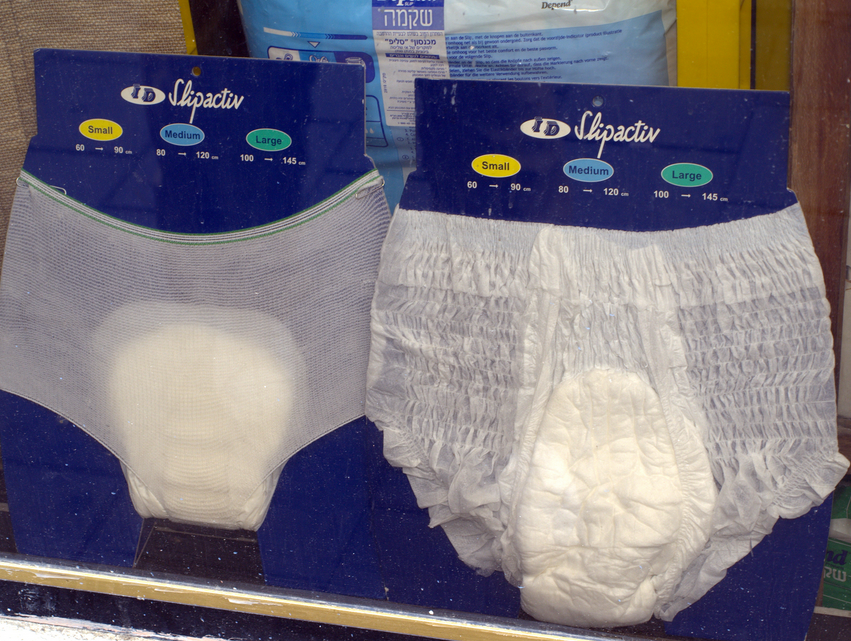
If you think that you could get some financial assistance from the gomen on this matter, you might be a little disappointed. After browsing through the Social Welfare Department website, it’s obvious that the services offered by them are targeted for those in the lower-income level and for elderly with no family and means of supporting themselves.
Financial aid and assistance provides RM300/month as subsistence allowance to help seniors continue living in the community. Among its requirements:
- age 60 years and above
- no other sources of income for a living
- no families or have families who cannot afford to contribute.
We scrapped that idea of gomen help as we had our own income. Then, we made inquiries with private nursing homes for a registered nurse to drop by the house and look after my mom, and oh boy, it is so freaking expensive. It costs almost RM5,000 for 8 hours of service for a period of one month! And that’s more than my own pay check!
So we resorted to the idea of hiring a maid to look after my mum. After two years of searching and waiting, we finally managed to get one. This is seriously ain’t cheap either. We had to fork out RM10,000 for the upfront payment to the agency. But at least after that, it only costs us about RM700 a month for maid’s salary compared to the RM5,000 for a registered nurse. Fuhhh!
Here’s how much is spent monthly:

Although my brother helps to pay the maid’s salary and my sister paid for the apartment that my mum and I were living in, the other costs for groceries and bills, etc. still borne by me. Honestly, my RM3,000 monthly paycheck (then) was barely enough for us. I had no choice but to create a monthly budget and stick to it.
I can tell you that it’s not fun at all with spending cuts here and there, but it’s our responsibility and this needs to be done. If anything, this is a true eye-opener as we can only imagine how much our parents sacrificed to raise us up.
4. Clubbing? What clubbing?

Before we hired a maid for my mum, she was taken care of by my aunt during weekdays and I would step in on the weekends.
My typical routine would be changing my mum’s soiled diaper in the morning, serving her breakfast, giving her a bath around noon, then serving lunch, changing her diapers again in the evening, then her dinner and changing her diapers before bedtime. So with that in mind, I didn’t really have the time to socialise, and gone were the days of happening Friday nights and chilled weekends.
My only window to the outside world was mostly through social media. There were a lot of times that I actually felt left out with my group of friends after seeing photos of them doing fun activities without me. But who could blame them? They are all aware that I have a mother to look after. So there was really no point inviting me.
At one point, I really resented that I had to sacrifice my weekends. It didn’t help that my brother and his family gets to enjoy their free time just because he is anak lelaki, while my sister and her family were staying all the way in England. So it did drive a wedge between me and my mum, but I hated how I felt after that. Like a selfish, childish kid, whining for not getting what I want.
Since then, every time I see pictures of my friends having fun, I just quickly scrolled up without giving it a thought. It’s not easy, but I kept telling myself that I have a greater responsibility. Those fun activities can wait.
5. Don’t expect words of kindness, appreciation or recognition.

Since I’ve been spending the weekends with my mum, I thought that perhaps she could see all the effort that I’ve put in for her. But I was so wrong. Instead she was pining for my absent brother who barely paid a visit to see her. To make it worse, nothing I do seemed enough for her. Thinking back, how the heck did I survive those tiring moments?
One thing for sure is that feeling under-appreciated by the person that I care for did weigh me down. But there’s nothing much I could do. My elderly mum is now a helpless child, and turning my back on her is definitely not an option. The challenge for me is to be really patient with her and not take it to heart, no matter how hurtful it may be. And knowing that I’m doing the best that I can for her is what keeps me going.
6. Don’t beat yourself up when you start having negative thoughts.

With a challenging elderly parent, you’ll go through a roller coaster of emotions. One moment you want to do everything you could for her. Another moment you just couldn’t care less. This was a constant battle for me.
I would come over every weekend, reminding myself to be a good daughter, but my mother never ceases to push the button. I would get mad at her, felt guilty about it, and get mad again. It was just a never ending vicious cycle. But lucky for me, I found a way to escape from it. The Internet.
Laugh all you want, but it has helped me through some of the though moments. I would just browse articles on dealing with difficult elderly parents or read on forums that I could relate to and knock some sense into me. That was my coping mechanism.
From there, I’ve learnt that it’s totally normal to sometimes have those negative thoughts and one shouldn’t feel guilty about it. Caregivers are just human after all.
7. Have a strong support system from your loved ones

Those who have cared for their aging relatives know how demanding the task is. It drains you, physically and emotionally.
At the beginning, I used to cry my eyeballs out to release some stress. But nothing beats talking about your elderly mother to the people that matter and care about you. Not only that it feels great to be able to say what’s on my mind, but knowing that there are people out there who actually appreciate what I’m doing for my mum meant so much to me. It’s like an emotional strength booster that I really need during those hard times.
So don’t try to be a superhero and do everything on your own. I can’t stress further how essential it is to have the support from caring relatives and friends to help you get through it.
8. It’s OK to put yourself first once in awhile

I used to feel like I’m such an awful daughter whenever I lied to my aunt and my mum about having to work over the weekend. When the truth is, I just wanted some “me time.” Not because I’ve been so busy with work that I wanted to chillax over the weekend. But it’s more of feeling like I’ve been stretched too thin and I needed a time out.
Looking back, I still feel a bit guilty (sorry Mama and Aunty Zee) for putting myself first sometimes. But did I regret doing so? Nope, not all. It has helped me to stay sane and keep the much needed balance in my life. And when I met my mother the following weekend, I felt refreshed and more in control of my emotions to handle her.
There’s always a silver lining…
Although my life was turned upside down due to the unfortunate incident, I’m glad that it’s happening now than later. Why? Firstly, ’cause I’m in my early 30s and still physically fit to look after my mum. It breaks my heart to imagine other helpless elderly folks who have no family – or, even worse – a family that doesn’t care.
Secondly, it showed me who were my true friends. I will not forget those who made the trips to visit my mum at the hospital. One of my friends even lent me her Kelisa, so that I could travel back and forth from Ampang to Sg Buloh Hospital. Ugaiz are awesome!
Last but not least, it gave me a second chance to rebuild the lost relationship with my mother. Growing up, we were never close, always minding our own business. But this time around, I have the opportunity to make both of our lives more meaningful and I will not let anyone take that away from us.
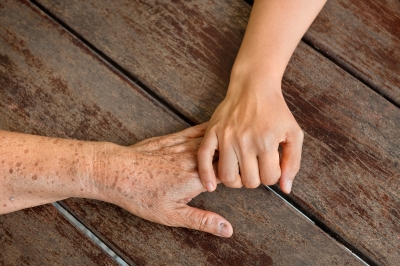
To those out there who are taking care of their ageing parents, give yourself a pat at the back. It’s not an easy feat, but it can be accomplished with the support from those around you. Just remember, you are not alone in this.
- 3.2KShares
- Facebook3.2K
- Twitter2
- LinkedIn2
- Email5
- WhatsApp27



